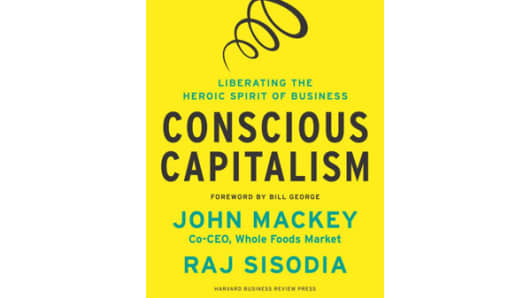The 70 percent solution
(Read More: The Tax Risks of Doing Business in the 'Cloud')
One of the most serious consequences of this dwarfed manifestation of business is that the average engagement of workers in the United States hovers around 30 percent. Some 7 out of 10 workers just aren't that into their jobs. Think of the opportunities for everyone if those ratios were reversed.
It is the job of business leaders to help engage that lost 70 percent, and to help employees realize that in their hands—and hearts—lies the basis for the positive transformation of societies and communities.
Capitalism for a new generation
It's a different way of thinking about business. Instead of viewing situations as tradeoffs (high wages leads to lower profits), the authors advised that we think in terms of mutual wins: living wages lead to happier staff members, which creates happier customers, which generates higher sales, which results in satisfied shareholders.
Could Conscious Capitalism do for business what Silent Spring did for the environment?
The widespread view of capitalism as some sort of necessary evil is a kind of DDT to human potential. Breaking into an enlightened conception of capitalism could liberate human potential, leading to new levels of innovation and personal fulfillment.
Tearing down the Ivy Curtain
(Read More: Getting Corporate Wellness Programs Off the Couch)
More colleges are now focusing not only on entrepreneurism, but on social entrepreneurism. Students will do their own mashups to create businesses that feel like nonprofits, and nonprofits that are run like businesses. I'm hopeful that these young innovators will tear down the Ivy Curtain that for my generation separated the so-called impractical liberal arts from majors like business and accounting.
My own sons, college classes of 2010 and 2013, are reading Conscious Capitalism, so we can discuss it as a family. Already they've let me know it seems rather obvious to them.
And maybe that's our best hope—that young people setting off in business today will know that capitalism can do good in the world.


